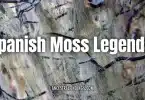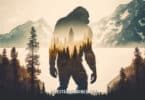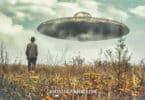The 19th state admitted to the Union, Indiana is also the nation’s 38th largest and 17th most populous. It was one of the earliest states outside of the original 13 colonies to be opened up to exploration and settlement, and became a state in 1816, only a little over three decades after the end of the American Revolution. With a long Native American history going deep back into time, there are plenty of folklore tales unique to this Great Lakes state. Here are some of the highlights of those tales.
The Crosley Monster
The Crosley Monster is Indiana’s version of Bigfoot. It seems most areas of the United States (and even North America in general) have some version of a Bigfoot tale, but with regional differences that make each story unique. In Indiana’s version, the monster resides in Jennings County, and is half animal and half human. It has roamed the county for longer than anyone can recall.
While stories of the Crosley Monster have existed for generations, maybe longer, the most recent reported sighting was in 2006, when four boys who were camping in the woods in Jennings County encountered it. They were in the Crosley Fish and Wildlife Refuge, and set up camp for an evening, and were settling in when they began to feel like something was watching them. Shortly after that, they heard the sounds of something approaching their camp site.
They expected to find a deer or some other usual and harmless animal, but instead, they saw a large beast standing on two legs, with large and glowing eyes. It was extremely hairy and dirty, and stood about seven feet tall. It spotted the boys and began to shake the limbs of the nearby trees violently, before leaping at them in a way that seemed it intended to harm them. The boys fled the scene, and the monster chased them, dropping onto all fours to do so. It chased them through a corn field, and when the boys passed through it and reached the road, the beast turned around and returned to the field.
The Lady in Gray
The Willard Library, located in Evansville, Indiana, has a ghost known as the Lady in Gray. She is so associated with the library that many guests have claimed to have captured her image in photographs while there. The lady is believed to be the daughter of the library’s original owner, as the building used to be a family home. The daughter’s name was Louise Carpenter. Her identity is not certain, but this is who most people believe her to be.
When she appears at the library, the smell of her perfume, flickering lights, water faucets turning on and off by themselves, and moving books are said to accompany her. Psychics visited the library in 2007 and confirmed a ghostly presence was there. Police officers responding to the security alarm going off at the library one night reportedly saw her face in the upstairs window. She sometimes appears in the elevator, as well. The library capitalizes on her popularity by hosting ghost tours in October to give residents and visitors a chance to meet her themselves.
Diana of the Dunes
Unlike most ghosts, this one has an identity that can be confirmed. Diana of the Dunes was, in life, a woman named Alice Marble Gray. Alice was a free spirited lady, kind of a hippie before hippies were invented, and lived in Indiana in the 1920’s. She was always considered a non-conformist, and this reputation was solidified when she was thirty-five years old and chose to go live alone in an abandoned shack and farm the land. The area where her shack stood is now called Dunes State Park.
While there, Alice met Paul Wilson, a fellow non-conformist and recluse, and they began living together. They may have married, but this has not been confirmed. Paul later became a murder suspect when a burned and beaten body was found near the shack he and Alice shared, and they planned to move to Texas via raft, as the locals were already suspicious of them because of their unconventional lifestyle. Before they could move, Alice died because of kidney issues that could not be treated in those times, though there was a rumor that Paul killed her.
Alice never left the dunes she loved, and her spirit often appears there in the nude, walking along the shore or even swimming in the lake. Over the decades, her name has been changed by locals to the more literary-sounding “Diana of the Dunes.” Though she can be seen quite clearly, she disappears if anyone gets too close to her.
The Ghosts of Dogface Bridge
It’s not its real name, but a bridge in San Pierre, Indiana became known as Dogface Bridge after a honeymooning couple crashed their car there in the 1950’s. The story goes that they were swerving to avoid hitting a dog that was crossing the bridge, and their car went off the bridge in the swerve. The couple was killed, and ghosts have been seen on the bridge ever since, most notably one of a woman with the head of a dog. The sounds of dogs growling and howling around the bridge (with no dogs being visible or present) is also common at this place.
The Beast of the Ohio River
This tale originated in 1955 when a monster about the size of a human and with green claws began going after women who were swimming in the Ohio River. The area where it supposedly lives is right outside of Evansville. The creature is said to have hairy arms, green skin, and large hands with claws on them. The first woman who the creature went after was almost pulled under a few times before escaping, and was left with visible injuries, including a green human hand print on her. Some people believe this monster was an alien that arrived with the infamous goblin sightings in Kelly, Kentucky, where locals reported seeing UFOs and goblin-like creatures on the same day as the first appearance of the beast of the Ohio River.






